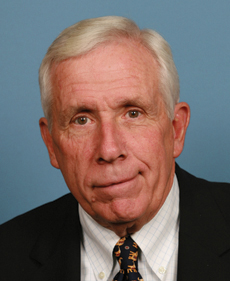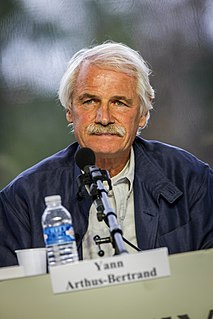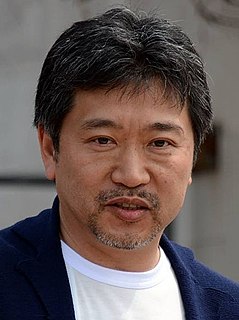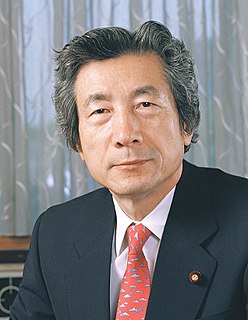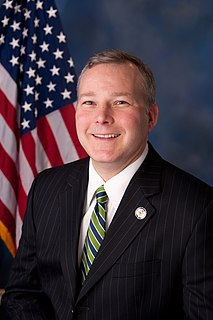Top 1200 Foreign Countries Quotes & Sayings - Page 13
Explore popular Foreign Countries quotes.
Last updated on December 23, 2024.
We have seen numerous instances in which American businesses have brought in foreign skilled workers after having laid off skilled American workers, simply because they can get the foreign workers more cheaply. It has become a major means of circumventing the costs of paying skilled American workers or the costs of training them.
No country has a perfect report card. While some countries have strong points in specific areas, they may have serious lacunae in other areas. For instance, some countries have made enormous progress on civil and political rights, but lag in the implementation of economic, social and cultural rights.
In the life of the human spirit, words are action, much more so than many of us realize who live in countries where freedom of expression is taken for granted. The leaders of totalitarian nations understand this very well. The proof is that words are precisely the action for which dissidents in those countries are being persecuted.
In treating of the oak, I have considered that the species of it growing in warm climates is superior to that which is produced in cold countries. But we must not imagine this to be the case with all woods; on the contrary, the fir timber grown in cold countries is superior to that produced in warm ones, where its growth is rapid.
Being a President I will carry out a foreign-policy platform that will transform America's role in the world to that of a proactive, not reactive, superpower that will use diplomacy and incentives to head off trouble in unstable regions before they unravel out of control. I will also be wearing platform shoes when I meet with foreign dignitaries to accentuate my well-toned calves.
If the relatively rich participating countries want to stabilize atmospheric concentrations of greenhouse gases, they will have to pay at least some poor countries to reduce their emissions. Achievement of substantial reduction in this way implies international transfers of wealth on a scale well beyond anything in recorded history. There is no effective political support for such a Herculean effort, particularly in the United States.
I knew that I was writing for an American audience and that if I sold foreign rights, they would retranslate the book to make it make sense to that language. But one thing that was really important to me was not to italicize any of the words in the languages that were in the stories, because I feel like those foreign words felt just as important and integral to the story as everything else, so I wanted it all to just exist as its own thing.
The climate, financial and national security crises are all connected. They share the same cause: Our [the USA's] absurd dependency on foreign oil. As long as we need to spend billions of dollars each year to buy foreign oil from state-run oil companies in the Persian Gulf, our problems of a trade deficit, a budget deficit and a climate crisis will persist.
Ronald Reagan was one of our great foreign policy Presidents. He did not come from the Senate. He did not come from the foreign policy world. He was a governor, but his resolve, his clarity of purpose, his intelligence, his capacity to deal with complex issues and solve tough problems served him extremely well, and if I were elected President, I hope I could rely upon those same qualities.
First, climate change is the greatest long-term threat faced by humanity. It could cause more human and financial suffering than the two world wars and the great depression put together. All countries will be affected, but the poorest countries will be hit hardest. Secondly, the costs of inaction far outweigh the costs of action.
In 1949, I believed that social progress, the triumph of the proletariat, socialism would lead to the emancipation of women. But I saw that nothing came of it: first of all, that socialism was not achieved anywhere, and that in certain countries which called themselves socialist, the situation of women was no better than it was in so-called capitalist countries.
More than 180 countries around the world have ratified CEDAW, some with reservations. While the United States signed the treaty in 1981, it is one of the few countries that have not yet ratified it. As a global leader for human rights and equality, I believe our country should adopt this resolution and ratify the CEDAW treaty.
What is a country? A country is a piece of land surrounded on all sides by boundaries, usually unnatural. Englishmen are dying for England, Americans are dying for America, Germans are dying for Germany, Russians are dying for Russia. There are now fifty or sixty countries fighting in this war. Surely so many countries can't all be worth dying for.
The books one reads in childhood, and perhaps most of all the bad and good bad books, create in one's mind a sort of false map of the world, a series of fabulous countries into which one can retreat at odd moments throughout the rest of life, and which in some cases can survive a visit to the real countries which they are supposed to represent.
One of the greatest concerns that I had when I became President was the vast array of nuclear weapons in the arsenals of the United States and the Soviet Union and a few other countries, and also the great proliferation of conventional weapons, non-nuclear weapons, particularly as a tremendous burden on the economies of developing or very poor countries.
Women of all ages in countries around the world are raped at all different times of day, in different circumstances, wearing all different kinds of clothing (including in countries where the majority of women wear completely covering clothing). The one thing they all have in common? They came into contact with a rapist.
What you need to know about North Korea is that it's not like other countries like Iran or Cuba. In those countries, you have some kind of understanding that they are abnormal, they are isolated and the people are not safe. But North Korea has been so completely purged from the rest of the world, it's literally a Hermit Kingdom.
First of all, Greece won't go down. We're talking about a country that is capable of making change. Europe will not allow the destabilization of the 27-country euro zone. But if there were no action, then markets would start becoming jittery about other countries - and not only Spain and Portugal, but other countries in the European Union.
India is a country that has no direct interests in some areas of global conflict. It has very good relations with countries in conflict or countries facing difficult security situations, and I believe Indian diplomacy is very well received. India is a bridge-builder, an honest broker, and a messenger of peace.
So we really need jobs now. We have to take jobs away from other countries because other countries are taking our jobs. There is practically not a country that does business with the United States that isn't making - let's call it a very big profit. I mean China is going to make $300 billion on us at least this year.
I don't believe in making movies to cater to a foreign audience. You never know what the reaction is going to be anyhow. At the time I made Maborosi, the Japanese movies getting any foreign attention were all period dramas and seemed to be about some representative element of Japanese life, and my movie was contemporary movie about one specific woman trying to understand her husband's suicide.
... Member Countries shall take necessary action and/or shall establish negotiations, individually or in groups, with the oil companies with a view to adopting ways and means to offset any adverse effects on the per barrel real income of Member Countries resulting from the international monetary developments as of 15th August 1971.
To speak only of food inspections: the United States currently imports 80% of its seafood, 32% of its fruits and nuts, 13% of its vegetables, and 10% of its meats. In 2007, these foods arrived in 25,000 shipments a day from about 100 countries. The FDA was able to inspect about 1% of these shipments, down from 8% in 1992. In contrast, the USDA is able to inspect 16% of the foods under its purview. By one assessment, the FDA has become so short-staffed that it would take the agency 1,900 years to inspect every foreign plant that exports food to the United States.
Many countries which are no longer able to afford their public health systems, which have made certain promises within their countries to purchase from free market or from other economies, are approaching us seeking help with the supply of generic drugs, which is opening a very big room of opportunity for us.
Climate change is...a gross injustice-poor people in developing countries bear over 90% of the burden-through death, disease, destitution and financial loss-yet are least responsible for creating the problem. Despite this, funding from rich countries to help the poor and vulnerable adapt to climate change is not even 1 percent of what is needed.
It is ... necessary to whip up the population in support of foreign adventures. Usually the population is pacifist, just like they were during the First World War. The public sees no reason to get involved in foreign adventures, killing, and torture. So you have to whip them up. And to whip them up you have to frighten them.
After Iraq, there's been Libya, there's Syria, and the rhetoric of, you know, democracy versus radical Islam. When you look at the countries that were attacked, none of them were Wahhabi Islamic fundamentalist countries. Those ones are supported, financed by the U.S., so there is a real collusion between radical Islam and capitalism. What is going on is really a different kind of battle.
"The Constitution" has something called The Emoluments Clause. That's just a fancy, 18th century word for no foreign government payments. And Donald Trump is collecting foreign government payments and other benefits throughout his business.It is a direct violation of "The Constitution" and unless he divests, not just operations, he must divest from all business interests or he will be in violation of "The Constitution" from day one.
You have countries that have lived beyond their means, with bloated governments, huge trade deficits, and people living off the government. Then you have others where poor people are working hard and underconsuming and their governments are buying all this debt and propping up the extravagant countries. All of this has to change. There's a tremendous moral hazard involved with this system.
The great rule of conduct for us, in regard to foreign nations, is in extending our commercial relations to have as little political connection as possible... Why, by interweaving our destiny with that of any part of Europe, entangle our peace and prosperity in the toils of European ambition, rivalships, interest, humor, or caprice?... It is our true policy to steer clear of permanent alliances with any portion of the foreign world.
My view on global warming is that it's a gigantic financial scam to funnel money to these countries that think they ostensibly are going to use to improve conditions in their country, environmentally and so on, but officials use - I guess apparently Tiger Woods did - to hire hookers, ride around in limos and in cases of some of these diplomats and some of these countries buy cocaine.
Pakistan is, I always feel, hopeful. You know, our system of government is not, and the system of foreign policy whereby we do whatever is asked of us as long as the price is right only proves to fundamentalist outfits and to militant groups that when we talk of things like democracy, when we talk of things like foreign policy, what we're really talking about is being pro-American.
We look a little bit disorderly, indecisive, leaderless. That's a real problem, and that's a problem that concerns me particularly on foreign affairs. The presidency, not just President Obama, but the presidency in recent years has lost some of the terrain that they used to dominate in the making of foreign policy. I think President Obama has to make a serious effort to regain it because he lost some of it himself.
Our country has caused tremendous damage and pain to the peoples of many countries, especially Asian countries, through colonial rule and invasion. Humbly acknowledging such facts of history, I once again reflect most deeply and offer apologies from my heart as well as express my condolences to all the victims of the last major war both in and out of the country,.
We need a leader who has a sense of balance, an understanding of the ebb and flow of history and a sense of our country's unique place in it. This is a foreign policy debate, and you cannot conduct foreign policy without a sense of what we are fighting for. And any President who can reduce the conduct of this country's affairs to a morning's attack by a bunch of demented fascists does not, in my view, understand what this great nation is all about.
We also discussed [with the President of Mexico] the great contributions of Mexican-American citizens to our two countries, my love for the people of Mexico, and the leadership and friendship between Mexico and the United States. It was a thoughtful and substantive conversation and it will go on for awhile. And, in the end we're all going to win. Both countries, we're all going to win.
Only one rational path is open to us - simultaneous de-development of the [overdeveloped countries] and semi-development of the underdeveloped countries (UDCs), in order to approach a decent and ecologically sustainable standard of living for all in between. By de-development we mean lower per-capita energy consumption, fewer gadgets, and the abolition of planned obsolescence.
Even today to be civilised is held to be synonymous with being westernised. Advanced countries devote large resources to formulating and spreading ideas and doctrines and they tend to impose on the developing nations their own norms and methods. The pattern of the classical acquisitive society with its deliberate multiplication of wants not only is unsuited to conditions in our countries but is positively harmful.
Another longstanding foreign policy flaw is the degree to which special interests dictate the way in which the "national interest" as a whole is defined and pursued.... America's important historic relationship with Israel has often led foreign policy decision-makers to defer reflexively to Israeli security assessments, and to replicate Israeli tactics, which, as the war in Lebanon last summer demonstrated, can turn out to be counter-productive.
When we look at the wider picture, the relationship between the U.K. and America, I know how valuable the friendship is between our two nations. As home secretary, I can tell the House that the importance of the relationship between our countries, the unparalleled sharing of intelligence between our countries, is vital.
